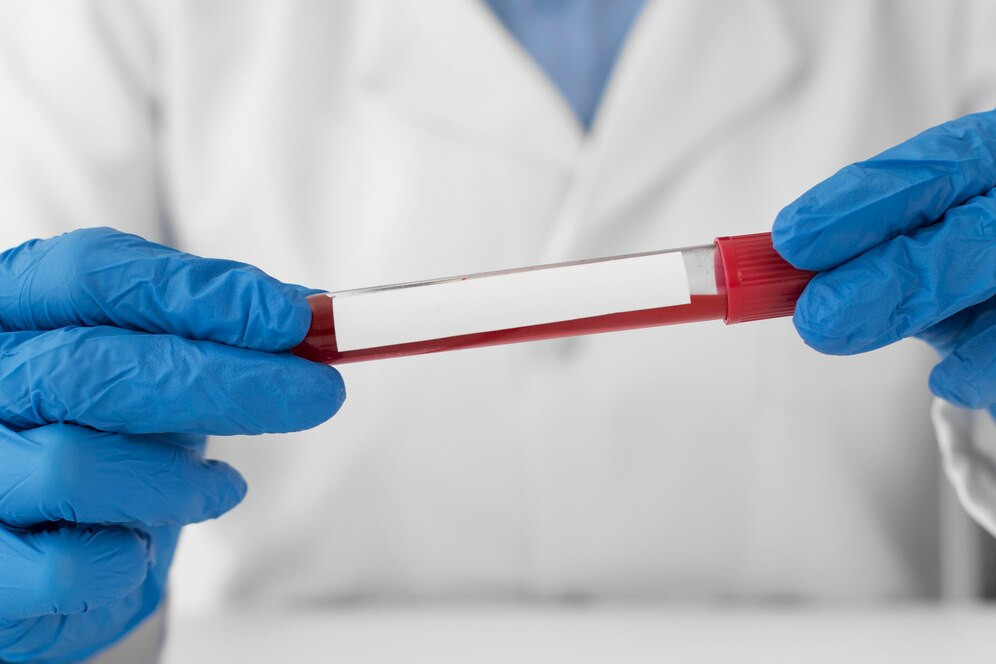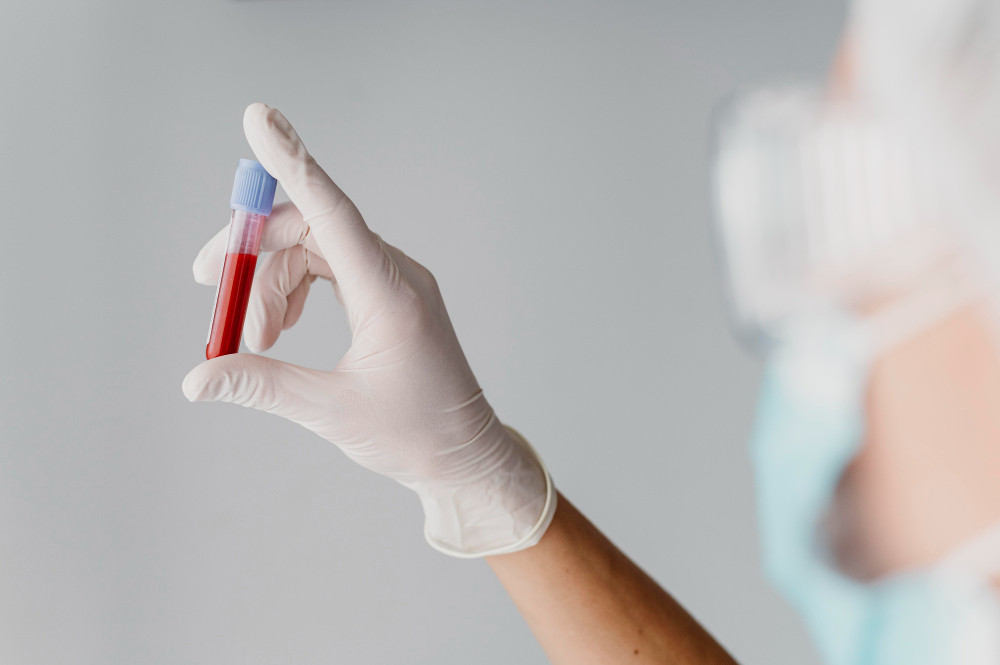Definisi
Toksoplasmosis adalah infeksi parasit yang disebabkan oleh Toxoplasma gondii. Pemeriksaan toksoplasmosis dilakukan untuk mencari tahu apakah seseorang sedang terinfeksi atau memiliki riwayat infeksi toksoplasmosis sebelumnya.
Ada beberapa pemeriksaan diagnostik yang dapat dilakukan untuk mengidentifikasi toksoplasmosis pada seseorang, salah satunya adalah pemeriksaan serologi. Tubuh dapat menghasilkan antibodi (IgG atau IgM) sebagai respons masuknya parasit T. gondii ke dalam tubuh ketika seseorang terinfeksi. Pemeriksaan serologi dapat membantu mengetahui apakah orang tersebut sedang terinfeksi toksoplasmosis saat ini atau mereka pernah terinfeksi penyakit tersebut di masa lalu.
IgG atau immunoglobulin G biasanya dihasilkan beberapa waktu setelah infeksi dan akan terus ada di tubuh orang tersebut sepanjang sisa hidupnya. Terdeteksinya antibodi IgG toksoplasma pada tubuh seseorang menandakan bahwa individu tersebut memiliki kekebalan terhadap toksoplasmosis.
Kami juga memiliki artikel mengenai toksoplasmosis yang bisa Anda baca di sini: Toksoplasmosis - Definisi, Penyebab dan Faktor Risiko.
Indikasi
Pemeriksaan toksoplasmosis bisa disarankan oleh dokter Anda untuk:
- Wanita yang sedang mencoba untuk hamil atau sedang dalam usia awal kehamilan
- Wanita hamil dengan riwayat terpapar toksoplasma
- Mengetahui apakah janin dalam kandungan sudah terinfeksi toksoplasmosis
- Setiap orang yang mengalami gejala toksoplasmosis
- Orang-orang tertentu dengan penurunan kekebalan tubuh yang mengalami gejala mirip flu
Ada dua jenis pemeriksaan antibodi toksoplasma, yaitu pemeriksaan antibodi IgM dan IgG. Pemeriksaan IgG adalah tes diagnostik awal yang digunakan untuk memastikan apakah seseorang pernah terpapar T. gondii sebelumnya. Hasil pemeriksaan IgG toksoplasma yang positif menunjukkan bahwa adanya riwayat infeksi toksoplasmosis di masa lalu tanpa memberi informasi lebih detail mengenai waktu pasti terjadinya infeksi.
Kontraindikasi
Tidak ada individu yang dikontraindikasikan dalam melakukan pemeriksaan kadar anti toksoplasma IgG dalam darah; setiap orang bisa menjalani pemeriksaan darah untuk memantau anti toksoplasma IgG dalam tubuhnya.
Persiapan Sebelum Pemeriksaan
Tidak ada persiapan sebelum pemeriksaan anti toksoplasma IgG yang perlu dilakukan. Pastikan agar dokter Anda mengetahui obat-obatan atau suplemen yang sedang Anda konsumsi. Perlu atau tidaknya Anda untuk berhenti mengonsumsi obat-obatan ini sebelum pemeriksaan dilakukan bergantung pada instruksi yang diberikan oleh dokter Anda.
Selain itu, bila Anda memiliki gejala-gejala yang diduga sebagai toksoplasmosis, dan Anda memiliki riwayat kontak dengan kucing atau membersihkan kotak kotorannya, Anda harus menginformasikan dokter Anda mengenai hal tersebut. Penting juga untuk memberi tahu dokter Anda jika Anda mengalami masalah perdarahan, atau jika Anda sedang dalam terapi obat pengencer darah.
Prosedur Pemeriksaan
Tenaga kesehatan akan mengambil sampel darah yang dibutuhkan untuk pemeriksaan dari pembuluh vena, umumnya dari vena di lengan Anda, menggunakan jarum suntik kecil. Setelah jarum dimasukkan, sejumlah darah akan diambil dan dimasukkan ke dalam tabung reaksi. Anda mungkin merasa sedikit nyeri saat jarum dimasukkan atau dikeluarkan.
Nilai Normal dan Abnormal
Kadar anti toksoplasma IgG diukur dalam IU/mL atau satuan internasional per mililiter. Nilai rujukan yang digunakan laboratorium akan berbeda pada setiap laboratorium tergantung pada assay atau prosedur spesifik yang digunakan dalam memeriksa kadar antibodi tersebut.
Bila hasil pemeriksaan Anda normal, kemungkinan besar Anda tidak pernah terinfeksi toksoplasma. Tidak ditemukannya anti toksoplasma IgG di tubuh menunjukkan bahwa orang tersebut tidak memiliki kekebalan terhadap toksoplasmosis. Bila seorang wanita tertular infeksi pada usia awal kehamilan, ada kemungkinan parasit bisa menyebar pada janin dalam kandungan.
Hasil pemeriksaan IgG yang positif menunjukkan bahwa individu tersebut memiliki kekebalan terhadap toksoplasmosis. Pada wanita hamil, hal ini menandakan bahwa mereka tidak berisiko menularkan toksoplasmosis kepada janin yang berada dalam kandungan.
Hasil dan Saran (Pemeriksaan Lanjutan)
Kadar IgG dan IgM anti-toksoplasma biasanya diperiksa bersama. Hasil tes bisa normal, negatif, positif, atau indeterminate (tidak bisa ditentukan). Pada hasil pemeriksaan yang indeterminate, orang tersebut biasanya akan diminta untuk mengulangi pemeriksaan. Tabel di bawah ini menampilkan interpretasi dari hasil pemeriksaan kedua antibodi toksoplasma.
|
IgG |
IgM |
Test Results Interpretation |
|
Negatif |
Negatif |
Saat ini Anda tidak sedang terinfeksi T. gondii |
|
Negatif |
Positif |
Anda mungkin sedang mengalami infeksi toksoplasmosis akut. Pada kasus bila diduga hasil tes IgM positif palsu, maka pemeriksaan IgM akan diulang |
|
Positif |
Negatif |
Anda terinfeksi T. gondii dalam enam bulan terakhir |
|
Positif |
Positif |
Anda terinfeksi T. gondii dalam dua belas bulan terakhir |
Konsultasikan ke Dokter yang Tepat
Penting bagi Anda untuk berkonsultasi dengan dokter atau dokter spesialis penyakit dalam mengenai interpretasi dari hasil pemeriksaan Anda. Dokter bisa memberi tahu bagaimana arti dari hasil tes Anda dan hubungannya dengan kondisi kesehatan atau penyakit Anda.
Mau tahu informasi seputar hasil pemeriksaan laboratorium, radiologi, dan lainnya? Cek di sini, ya!
- dr Hanifa Rahma
Toxoplasmosis Testing. (2021). Retrieved 26 September 2022, from https://www.testing.com/tests/toxoplasmosis-testing/
Toxoplasmosis Test. (2021). Retrieved 26 September 2022, from https://www.healthline.com/health/toxoplasma-test
How Toxoplasmosis is Diagnosed. (2021). Retrieved 26 September 2022, from https://www.verywellhealth.com/toxoplasmosis-diagnosis-4164712
Toxoplasmosis IgG and IgM. (2022). Retrieved 26 September 2022, from https://www.biron.com/en/glossary/toxoplasmosis-igg-and-igm/
Toxoplasma Blood Test. (2022). Retrieved 26 September 2022, from https://medlineplus.gov/ency/article/003514.htm












